US biotech firm’s shares soar as it claims progress in trials; analysts says sales, including by Israeli chief medical officer, are legal but undermine faith in company’s future
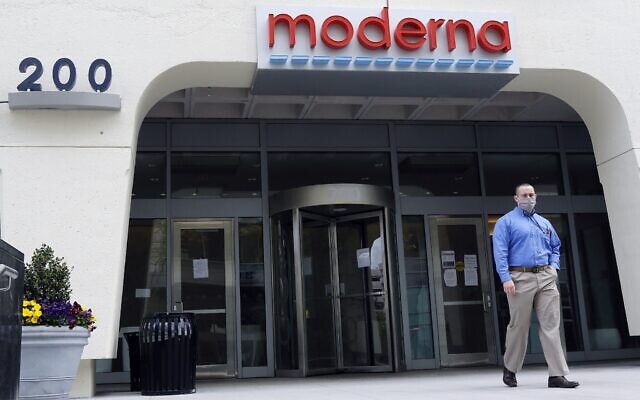
Five top executives at US biotech firm Moderna, including its Israeli chief medical officer, have cashed out stocks worth $89 million this year as shares in the company soared after it reported successful initial human trials for its experimental anti-COVID-19 vaccine, US media reported.
On Monday CNN reported that Moderna’s Chief Financial Officer Lorence Kim and Chief Medical Officer Dr. Tal Zaks executed options and sold nearly $30 million of shares combined on Monday and Tuesday of last week, citing SEC filings reviewed by CNN Business show.
On Wednesday the health and business-focused Stat news site reported that three other top execs had also sold stock, with the total combined sales of $89 million, representing a profit of some $80 million.
The reports stressed that the sales were legal, using a mechanism that allows company insiders to diversify assets without falling foul of insider trading regulations. However, analysts said such heavy selling at such a sensitive time undermined the credibility of the company and faith in its future success.
Share prices of the company soared after officials announced that its experimental anti-COVID-19 vaccine “actually works,” after tests on a small number of volunteers, and that it will start Phase 3 testing on thousands of people in July.
“We got the first results today… and today we are showing that it actually works… we are able to stimulate the immune system,” Zaks said in a May 18 interview with Israeli TV.
In the interview with Israeli television, Zaks said he was confident that, toward the end of the year, “we’ll be able to present first results that prove that our vaccine indeed prevents the disease.”
“By about the end of the year, the start of next year, there’s a reasonable likelihood that we’ll see this vaccine on the market, at least on the American market,” he said in the Channel 12 interview from Moderna’s headquarters in Massachusetts.
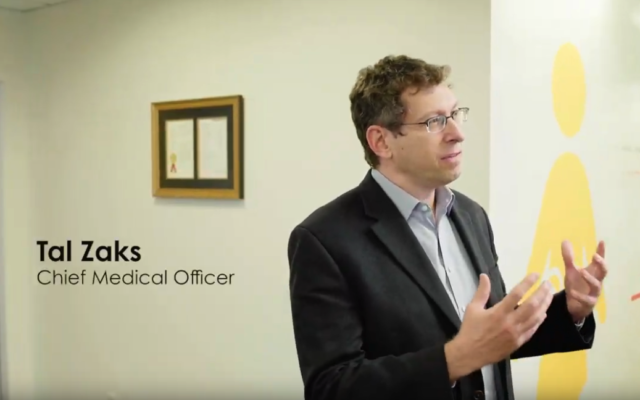
But even as the company was touting the success of the vaccine and the company’s value rose to $29 billion, the top executives were selling off their stock.
The securities transactions were done through automated insider trading plans, known as 10b5-1 plans, that lay out future stock trades at set prices or on set dates. This prevents accusations of insider trading and allows executives to diversify their holdings.
Zaks began the year with nearly 100,000 shares of the company, Stat said.
“In late February, days before Moderna announced that its coronavirus vaccine was ready for human testing, he began dumping 10,000 shares a week. Over the next 11 weeks, as the pandemic pushed Moderna’s share price from $18 to $50, Zaks liquidated his entire position, making $3.4 million in the process,” the report said.
“Once he ran out of stock, he began exercising options priced at $12.21 per share. Over the next two weeks, he sold more than 250,000 more Moderna shares at an average price of $67. Zaks profited more than $18 million from his 2020 trades,” Stat said, noting that he currently does not own any shares of Moderna stock.
Chief Technical Officer Juan Andres, Moderna also reduced his holdings to zero, while other executives including Kim, Moderna President Stephen Hoge and CEO Stéphane Bancel all sold large chunks, but still retained sizable stakes in the company, Stat said.
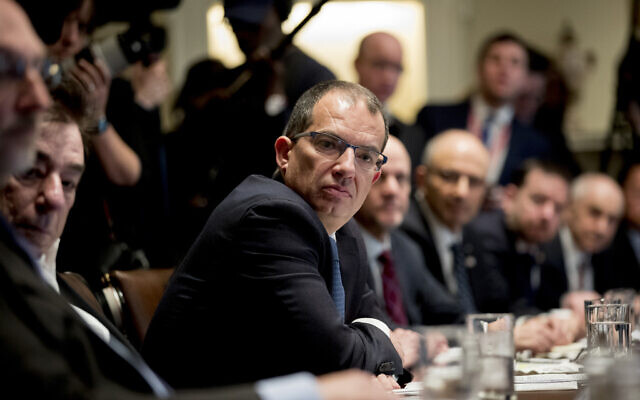
Moderna said the sales were executed under 10b5-1 trading plans that were established in advance. “These transactions are executing automatically pursuant to these trading plans,” the company told CNN.
The company did not respond to a request for comment from Stat.
Analysts said the moves could undermine other shareholders’ faith in the company and the potential of the vaccine.
“Even if it can be done legally, the optics are terrible because it shows you have a better place to put your money,” Charles Elson, a corporate governance expert at the University of Delaware told CNN. “It shows a lack of confidence in your company going forward.”
“If Moderna’s early-stage vaccine can one day prevent coronavirus infection and the company’s best days lay ahead, why are insiders selling?” Stat asked.
Speaking to Israeli TV, Zachs had played up his confidence in the vaccine.
Zaks said the battle against COVID-19 marked the firm’s ninth bid to develop vaccines against viruses, “and we succeeded with the previous eight.” Thus, he said, “the degree of confidence within the company was always high” that it would succeed this time, too.
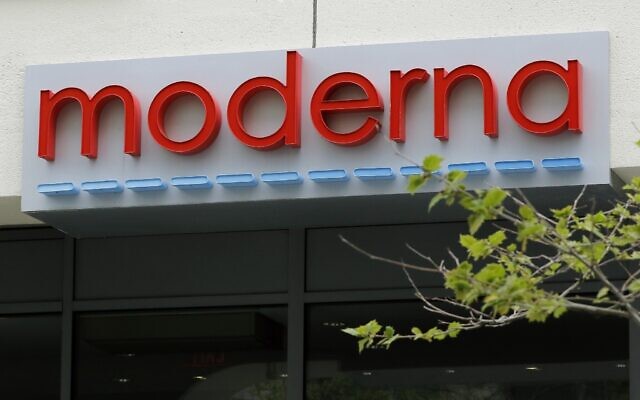
The company said the vaccine candidate, mRNA-1273, appeared to produce an immune response in eight people who received it, similar to that seen in people convalescing from the virus.
The Phase 2 trial, with 600 subjects, has already received the green light from the US Food and Drug Administration and Moderna said they should begin this quarter.
A Phase 3 trial, the largest and most important to validate the efficacy of a vaccine, should begin in July.
“These interim Phase 1 data, while early, demonstrate that vaccination with mRNA-1273 elicits an immune response of the magnitude caused by natural infection,” Zaks stated in the firm’s official release. “These data substantiate our belief that mRNA-1273 has the potential to prevent COVID-19 disease and advance our ability to select a dose for pivotal trials.”
Moderna, which was founded nine years ago, said the vaccine “was generally safe and well tolerated” and that patients suffered no more than redness or soreness from the shots.
The US government has invested nearly half a billion dollars in the development of Moderna’s vaccine candidate.
It is being developed in a partnership with the National Institute of Allergy and Infectious Disease headed by Anthony Fauci and the clinical test was carried out by the National Institutes of Health.
US President Donald Trump has said that he wants 300 million vaccine doses by January 2021 to protect the US population, and his administration has provided funding to Moderna, Johnson & Johnson, and France’s Sanofi.
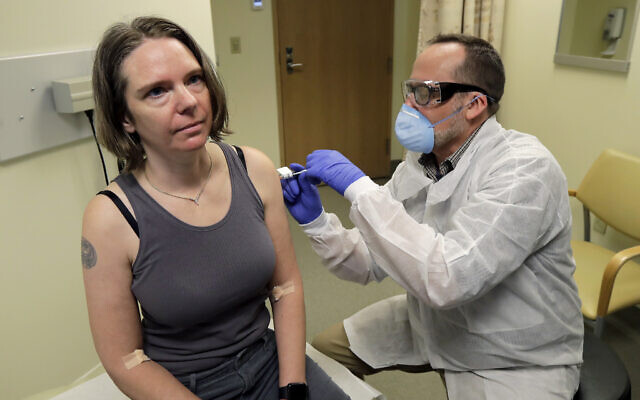
The development of a vaccine usually takes years but the coronavirus pandemic, which has caused more than 315,000 deaths, has given unprecedented urgency to the search.
A dozen clinical trials are taking place around the world, half of them in China, according to the London School of Hygiene & Tropical Medicine.
China has said that it is carrying out tests on humans of five experimental vaccines.
The challenge is not only finding a safe and efficient vaccine, but also producing billions of doses.
Several large laboratories, including Moderna, have said that they would immediately begin production of an eventual vaccine even before the completion of all of the clinical trials.
Moderna recently announced a partnership with the giant drugmaker Lonza to boost its manufacturing capacity to up to one billion doses a year.
Worldwide, about a dozen vaccine candidates are in the first stages of testing or nearing it. Health officials have said that if all goes well, studies of a potential vaccine might wrap up by very late this year or early next year.
There have been more than 5.6 million confirmed cases worldwide, according to Johns Hopkins University, and more than 350,000 people globally have died from the virus. The US has the most reported deaths by far and reached 100,000 deaths in less than four months.
As reported by The Times of Israel
